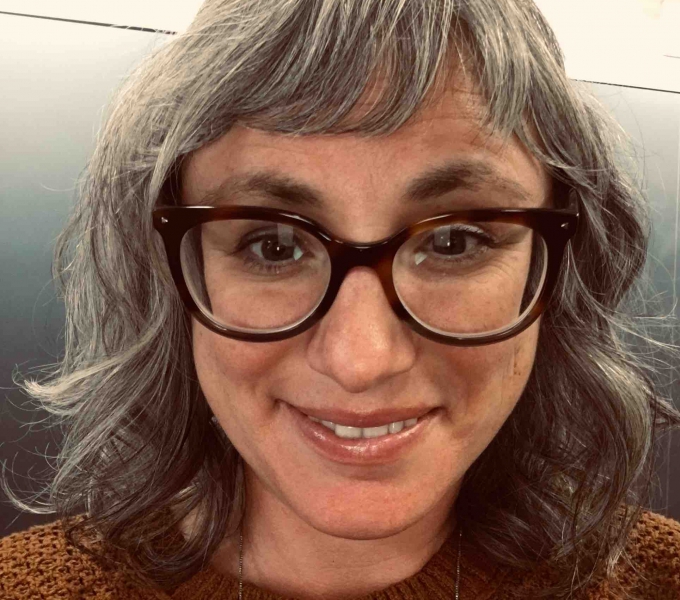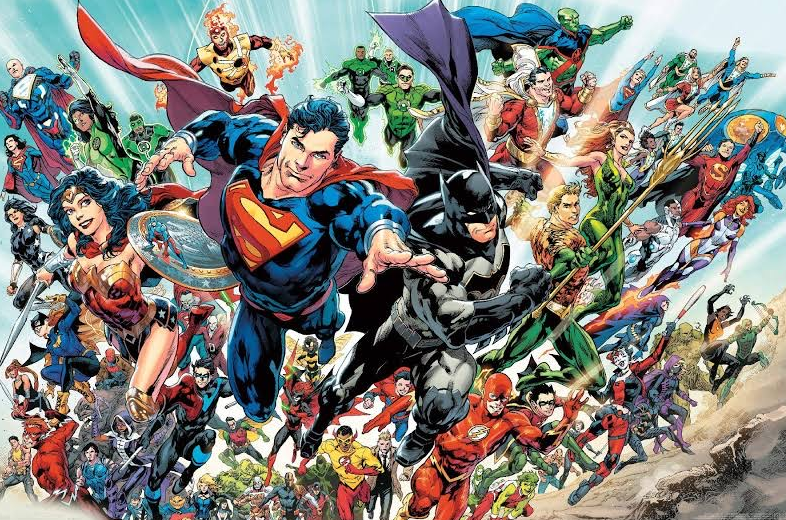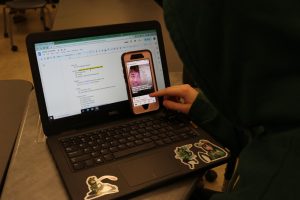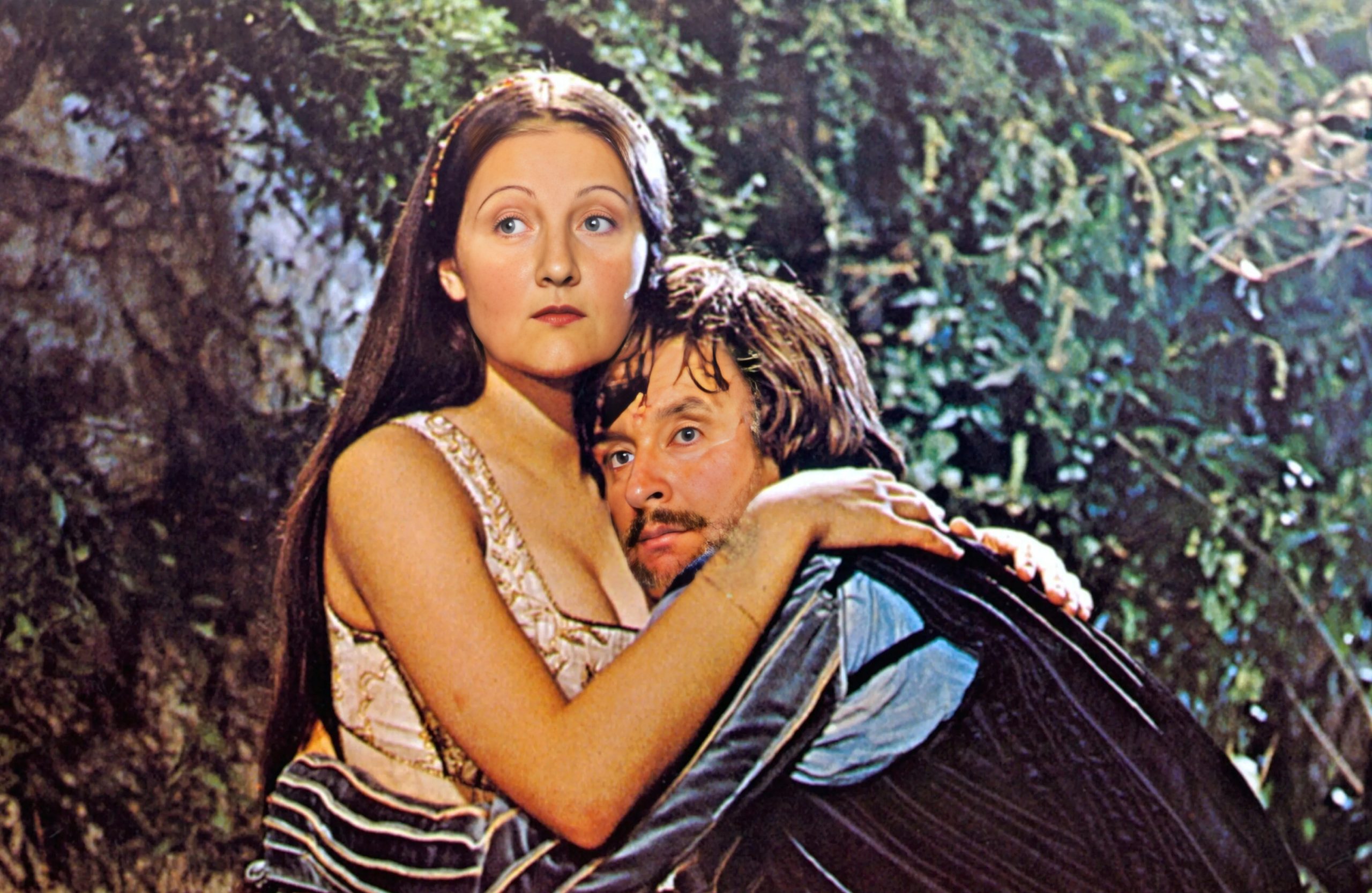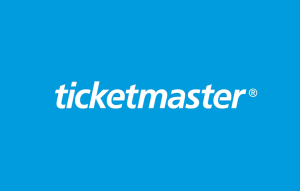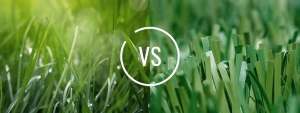An Interview with Observational Astronomer Dr. Rachel Bezanson
Dr. Rachel Bezanson is an observational astronomer and professor at the University of Pittsburgh.
November 3, 2021
Ever since a young age, I have been interested in astronomy. Since there is no better way to get information than getting it directly from the source, I decided to do just that. I held an interview with a local observational astronomer and Pitt professor: Dr. Rachel Bezanson. After reading the transcript of the interview, I would encourage you to talk to an expert in your field just to know how to handle your new career and know your own mind.
Why do you teach astronomy?
Well, I’ve been doing it off and on for a long time. I went into undergrad thinking I was going to be a doctor, like a medical doctor. And then I happened to take an astronomy class and really liked it, and I took another one and took more physics classes. And then when I graduated from college, I wasn’t really ready to go to graduate school, so I started working as a high school physics and astronomy teacher. I did that for about four years before I went to graduate school. So in some sense, I’ve kind of always been teaching. And even through college I did a lot of tutoring, and it’s been something that I’ve always really liked to do.
Why astronomy? I don’t know—I really like it, I think it’s interesting. It’s been inspiring people for centuries, or millennia, probably. It’s not the most practical, but I think it gives us a set of inspirational topics that we can use to teach things that are really relevant—like quantitative reasoning and mass and that kind of thing that I think are really important, broadly.
What are some important traits to have as a teacher of astronomy?
There are a bunch of ways that I could take this. One of the ways is—I mean, you have to have a kind of quantitative way of approaching problem solving. I think that maybe goes without saying. But I think also the stick-to-it-iveness or motivation to keep working. I would say that I’m kind of “tunnel vision” when I’m trying to figure something out, and I think that that’s helpful in terms of being a scientist.
And then in terms of being a teacher, honestly I think a lot of what makes me a successful teacher is just my willingness to meet people where they are. So instead of just assuming that people know “X, Y, and Z” before they come into your classroom, being willing to ask them what they know and what their preconceived notions are and trying to break those down. Because if you don’t know who’s in your classroom and what their background is, then I don’t understand how you could ever teach them. And also just caring about students as people—and not just as people sitting at a desk. I think that’s really important for anybody who’s teaching anything.
Do you think there is a major use of astronomy that people look over?
Historically, sure. It used to be the case that people would use celestial navigation to guide their ships through the night. That’s not really the world that we live in right now. There are tools, like technological inventions or advancements that have stemmed from astronomical research.
But when it comes down to it, it is a field that is driven by knowledge by the sake of knowledge. One of the things that I think makes a modern society is the fact that we can dedicate significant resources and time to figuring out the biggest picture questions about where we came from and other universes around us. But is it practical? No, it’s not very practical.
What do you think about the next generation of astronomers and astronomy teachers? What advice do you have for them?
I think in some ways the field is changing. This is happening in a lot of disciplines, but especially in astronomy where it used to be that the people who trained me or the people who trained the people who trained me were working on answering small or big questions in small groups of people. And astronomy has become—as have many disciplines—just a very hugely international field that’s driven by large collaborations—hundreds of thousands of people. So in terms of researchers, my advice is to figure out how to be a productive and helpful collaborator.
In terms of teaching, actually astronomy provides a really nice framework within which to teach some things that are really important, like broadly to society. I am what we would call an observer. Astronomy doesn’t have experimentalists; we don’t have labs. The universe gives us what the universe gives us—we can’t set the initial conditions. So I am an observer—I use telescopes and a fair amount of observational data, but the vast majority of my time is spent computer programming. And so, I think when I teach students that skill, or when the future generation of teachers teaches students those computational or analytical skills, those are broadly applicable. Whereas I would say that the field, the discipline-specific knowledge is not practical, those tools and methods are really applicable broadly. So that’s an important thing to keep in mind if you’re the next generation of people teaching or training astronomers—that the skills, the tools, the methods are broadly applicable, even if the field itself is not.
Do you do research on the tools themselves and how you can use them more efficiently?
Some of what I do is, given a physical piece of equipment, like an instrument that you could put on the back of a telescope, one of the best ways to design targets to look at. So I do some work in that respect—that kind of optimization. And that I do in the context of planning for big projects. There’s also an analysis component to what you’re getting at. So I have students in the classroom and also PhD and undergraduate students that work in my research group, and we do research together, collaboratively. And oftentimes, we’ll have a data set and be trying to figure out the best way to analyze those data—to look for trends in the data, and that’s usually a computational problem. And I work on both of those things.
Do you prefer teaching through a lab and experience over teaching through lectures and more traditional methods?
It’s totally different, and the short answer is yes. It’s not efficient—it’s like one-on-one or one-on-two, very labor intensive. But it’s also super rewarding because the growth in terms of skills and abilities and overall growth as a scientist is really cool. I’ve been a professor at Pitt for four years, so my experience is more limited than some people’s who have been doing this for much longer, but it’s kind of fundamentally different than the relationship you have with a student in the classroom over the course of a year or semester.
Did you have any major personal experiences with astronomy that persuaded you to enter the field?
It’s more like an accumulation of a bunch of different things I like than one obvious thing. There are some people who knew exactly what they wanted to do forever, and that’s never really been me. But I’ve always thought of this as something that I really enjoy doing, questions that I really enjoy studying, but had the course of events in my life and classes been different, I could’ve been just as happy studying who knows what, like evolutionary biology—who knows? I see it more as a chance alignment that works really well for me. I like that because it helps me appreciate and respect other disciplines. The feeling that I’m doing something that is really cool but I could be equally doing something else that I thought was really cool—that’s kind of a fun way to look at it for me.
Do you think learning should be more general, with information from many fields?
I encourage people to be open to possibilities. Try different things. Ultimately, if you decide to go get a PhD, then you have to focus and become very narrow. But that only has to be a narrowing of your specific expertise; it doesn’t have to be a narrowing of the things you’re excited about and interested in. So I just encourage people to be open to possibilities—if they try something and they really like it….In college I took a studio architecture class and really liked it and could imagine myself doing that. I’m glad that I didn’t do that—I like my job, specifically. But being open to possibilities is a positive attribute.
You said that programming was integral to your job. What other skills are necessary in your field that others might not expect?
Computer programming cannot be overstated. I think it’s surprising to some people how much of my job is just coding. There are math and physics requirements, but I think people expect those.
I think this is also surprising to some folks—that a lot of my time is spent writing. Writing papers, that’s less surprising; writing grant proposals, funding proposals, to help fund my research; writing proposals requesting time to use, say, a telescope. So I spent a really significant fraction of my time writing, in a way that I think would have surprised college-student-me.
And communicating! Public speaking is really a huge part of my job. And that’s in terms of teaching, but also in terms of presenting the results of my research. So going and giving talks at other schools, giving public talks—that kind of thing.
Do you remember any specific instances when writing was very important to your research?
All the time. It’s hard to understate how much time I spend writing. It ebbs and flows—telescope proposals are due at specific times—but sometimes I’ll spend thirty hours in a week writing. And you asked about collaboration—often that writing is very collaborative. I’ll have a collaborative document, and I’ll be writing with people all over the world, trying to write this persuasive argument for why we should do this set of observations. Or why this government agency should help support this particular research. So I spend quite a bit of time—during a low writing week, maybe five hours, up to sixty hours in some crazy weeks. It’s really a much larger fraction of my time than one might expect.
Can you elaborate on how you use programming in your job?
There are a lot of different ways I could answer this. But usually, if we collect, say, an image—a bit of an oversimplification, but let’s say I take an image from a telescope—of a galaxy, I almost never just look at that image. Usually I make measurements from that image. And whereas a lab scientist would have a bunch of equipment, all of my equipment is on the computer. Sometimes I’ll use existing software that’s used for specifically astronomical uses; sometimes I’ll write my own analysis software. What that really means is I’ll perform a bunch of mathematical operations over and over and over again on all of the different pixels in the image, or something like that. And then I produce plots and graphs and an analysis from that data. That all happens in programming, almost always in Python, but not exclusively.
After interviewing Dr. Bezanson, there were a few takeaways that I thought could be made. No field has just one major skill that is important. As an astronomer, it is obvious that astronomy would be important, but it may be more surprising how much programming and English are useful. Another point was that astronomy, and other fields, are not really all that important to the average person now, and it is not nearly as practical as it was a thousand years ago. So, it’s mainly just knowledge for the sake of knowledge, hoping that it will be useful in the future.


